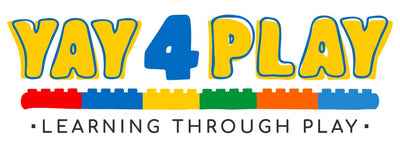"Playing together makes families happier, closer and less stressed – but over a third (38%) admit they struggle to prioritise playtime due to hectic daily schedules of both parents and their children." - according to a new report released by the LEGO Group.
How’s that for a fascinating statistic! The research conducted in 2020 shows without question that when play does happen, there are such incredible benefits. It seems that families who play together, stick together.
The sad ‘BUT’ in all of this is that the statistics aren’t positive:
Playtime is being squeezed - nearly a third (30%) of families spend less than five hours playing together every week. One in 10 (10%) play for less than two hours.
Even when families do get together to play, six in 10 (61%) parents admit they tend to get distracted by life’s other demands, such as work, house chores and their ever-present smartphones.

What can you do to ensure that play is prioritised in family life?
- Be deliberate about creating time in the day for play. Schedules are always busy and there’s no doubt a level of total exhaustion. Just 15 minutes carved out of the day will make an enormous difference. Simply set up the play so that it is within a child’s reach and they understand what is expected of them.
- Allow for a mix between what’s called structured play and free play. Either is fine. Structured play has more defined rules and processes which go a long way to developing all kinds of skills such as problem solving and bilateral co-ordination. Free play is great for allowing creativity to evolve so that your child is immersed in their imaginative world.
- You can even gamify household tasks. There could be a competition to see who can do something in the shortest amount of time. You could encourage your child to tell a story as they pack away their toys: a story that relates to one of the toys or a story that includes several toys.
- Play helps reduce feelings of stress and anxiety. Children are able to use play as a way of strengthening their coping strategies. Allow your child to experiment with different forms of play and even if they make a mistake, in play there is no right or wrong. Set up different play stations as there would be at a school and encourage your child to gravitate towards their special interests. This will give them a sense of control and ownership.
- Children feel joy when they move their bodies, dance, laugh and sing. This is the exact opposite of being glued to a screen or a device. The game can therefore be really simple and can even include simply exploring their environment in an outside area or in different rooms in the house.
- You are welcome to use the same activity over and over. It could be solving a puzzle or constructing models from your Yay4Play Play Kit. Children who engage in iterative play learn more quickly how to manage their emotions and behaviours.
Let’s have some serious fun as a family!
